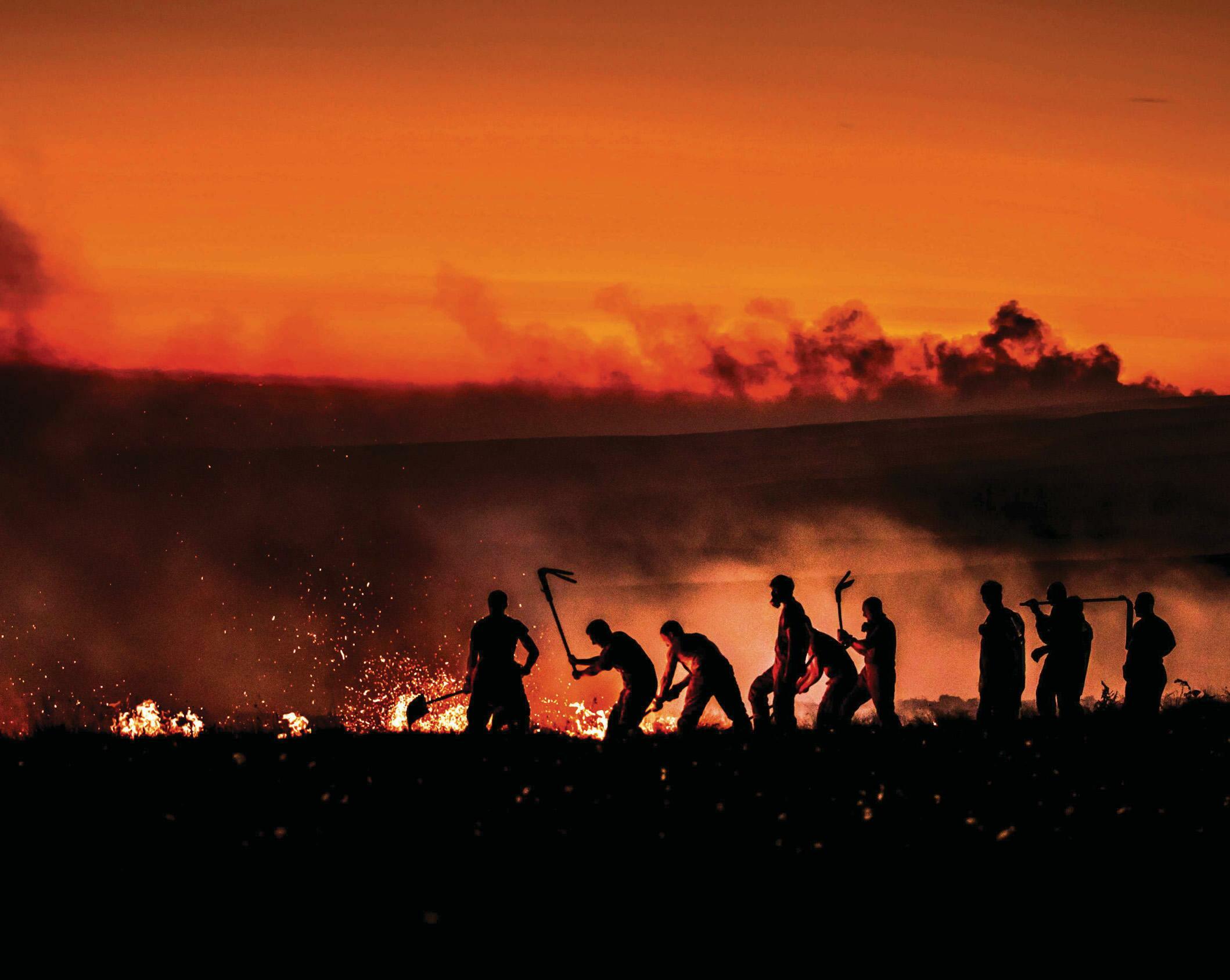
THE RECENT WILDFIRE events in Europe, Canada and Hawaii - and, prior to that, other US states and Australia - may dominate the headlines, yet wildfire is an issue faced by the UK, too.
Before the soggy affair that was July and August, a spell of hot weather meant wildfires were very much on our national agenda. In June, firefighters tackled a wildfire the size of 300 football pitches in woodland on Rhigos Mountain in South Wales. Around the same time, a nearly 2km-long patch of moor and woodland just south of Inverness went up in flames. A few days later, yet another wildfire was burning on Marsden Moor in West Yorkshire, the eighth in the area since February.
These are just a few of the wildfire events that have taken place in this country this summer, and there will be more in summers to come, each the result of action by humans, whether careless or, more likely, deliberate. A smouldering cigarette butt tossed into the undergrowth. A spark from a barbecue. An act of arson motivated by who knows what.
There are places in the world where wildfire is beneficial to ecosystems. In the boreal forests of Russia and Canada, for example, or the Australian bush, where lightning is a common source of ignition, wildfire has historically been part of a regular cycle of destruction and renewal, critical when it comes to maintaining biodiversity in a given environment. In the UK, however, where we have no so-called 'natural ignitions' from lightning, it's a different story.
Denne historien er fra October 2023-utgaven av BBC Wildlife.
Start din 7-dagers gratis prøveperiode på Magzter GOLD for å få tilgang til tusenvis av utvalgte premiumhistorier og 9000+ magasiner og aviser.
Allerede abonnent ? Logg på
Denne historien er fra October 2023-utgaven av BBC Wildlife.
Start din 7-dagers gratis prøveperiode på Magzter GOLD for å få tilgang til tusenvis av utvalgte premiumhistorier og 9000+ magasiner og aviser.
Allerede abonnent? Logg på

SNAP-CHAT
Justin Gilligan on giant spider crabs and holding hands with an octopus

STEPPE CHANGE
Herds of saiga have returned to Kazakhstan, but there's a fine balance to tread

TREES FOR LIFE
Community is at the heart of conservation in the tropical forests of southern Belize

WHEN DOVES CRY
Turtle doves are now the UK's fastest declining bird species, but the RSPB is on a mission to save them

SURVIVAL OF THE CUTEST
We can't help being drawn to cute creatures, but our aesthetic preferences both help and hinder conservation

LIGHT ON THE NORTH
Spectacular images of Arctic foxes, reindeer and musk oxen reveal the wild beauty and diversity of Scandinavia

ROLLING IN THE DEEP
The super-sized crustacean that lives in the deepest, darkest ocean

LET'S GET TOGETHER
Clay licks deep in the Amazon explode in a riot of colour, with macaws the stars of the show

FEMALE OF THE SPECIES
To sponge or not to sponge? That is the question for the bottlenose dolphins (Tursiops aduncus) living in Shark Bay, Western Australia.

7 nature encounters for the month ahead
WITH NATURALIST AND AUTHOR BEN HOARE